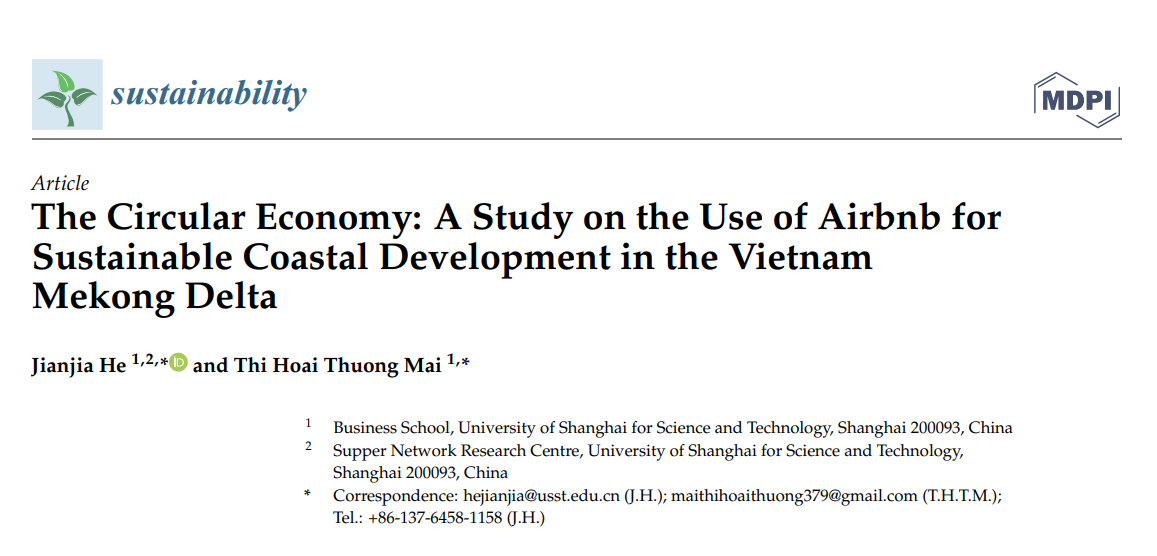The circular economy idea has gained popularity due to its solution-focused approach to converting available resources into a closed-loop resource system. Coastal resources, however, appear to be disregarded in the production and consumption of tourism in coastal locations. This article applies sharing-economy theory, which emphasises changes in the new form—a circular economy—rather than focusing on a single traditional Airbnb model or ecotourism model, to discuss how sharing economy practises may sustain coastal resources through ecotourism in relation to the 2030 Agenda for Sustainable Development Goals (SDGs).
This study uses the expectations of coastal residents for their living conditions as moderating factors to investigate the impact of the circular economy on coastal sustainability. It proposes a structure model for coastal sustainable development that integrates the sharing economy and ecotourism with three modes: positive economic effects, positive financial pressures, and sustainable coastal development. We used 303 samples from the indigenous people living in 13 provinces across the Vietnam Mekong Delta to create a survey-based model. The findings demonstrate how incorporating ecotourism into the Airbnb business model improves living conditions for locals and promotes sustainable growth in the community. However, because modernisation is still in its infancy in coastal areas, hurdles to coastal development arise from both the improvement of technology and the knowledge of locals.
More precisely, the findings in the Vietnam Mekong Delta indicate that low levels of technical expertise and linguistic proficiency act as roadblocks for coastal enterprises, demonstrating how the absence of interregional connectivity restricts the amount of local tourism that occurs in coastal regions. These results help evaluate the living conditions of the inhabitants so that coastal development can contribute to the decrease of poverty. In conclusion, the implementation and growth of policies by local governments can play a crucial role in developing the coastal economy by mitigating the adverse consequences of resource misuse and supporting family-run enterprises in coastal areas. This approach aims to reconcile economic growth with social and environmental accountability.


